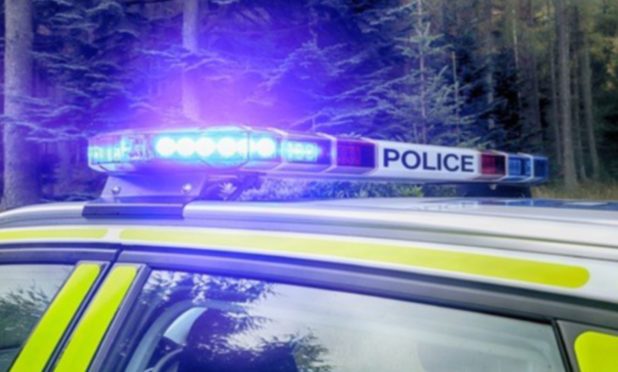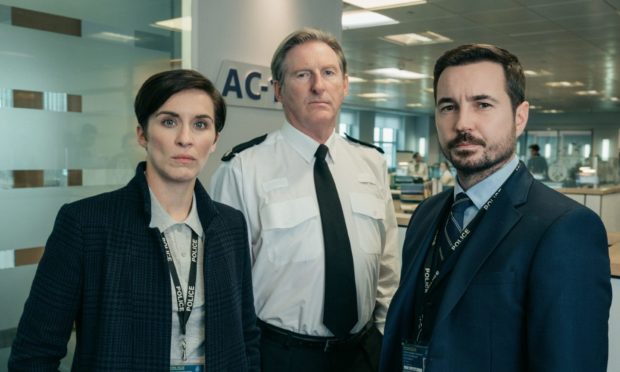Avid TV fans could watch all six seasons of Line Of Duty more than four times back-to-back before police would be able to say how many investigations into corrupt officers have been carried out in Scotland in the last five years.
Police Scotland was asked for the total number of anti-corruption cases in the north-east, Highlands and nationwide, as part of a Freedom Of Information request by this newspaper.
Inspired by the team led by Superintendent Ted Hastings and their never-ending work to root out bent coppers, The Press And Journal also asked how many complaints had been upheld.
But answers have been denied as they would cost too much to provide, a spokesman said – leaving this reporter with the same empty feeling scores of miffed fans suffered when the identity of mega-villain H was revealed on Sunday night.
More than 150 hours to count up corruption probes over the last five years
Police said the “only way” to to know how many anti-corruption cases had been investigated in the last five years would be to trawl through more than 1,800 records.
Allowing for five minutes reading of each document, that would account for more than 150 hours of work – quadruple the time needed to watch AC-12 sleuth their way to H from start to finish.
Series six of the hit show ended on Sunday night, drawing in a record-breaking 12.8 million people to watch investigators finally uncover the criminal mastermind behind institutionalised corruption within Central Police.

The police information officer said: “I regret to inform you that I am unable to provide you with the information you have requested, as it would prove too costly to do so within the context of the fee regulations.
“As you may be aware the current cost threshold is £600 and I estimate that it would cost well in excess of this amount to process your request.
“To clarify, initial checks of the relevant systems for the periods requested have established that the only way to accurately identify the information requested would be to individually research over 1,800 potential records.
“Even if it only takes five minutes to check each file this would equate to over 150 hours work, and is an exercise which would far exceed the cost limitations of the Freedom of Information (Scotland) Act 2002 (FOISA).”
Information withheld as to not alert those under investigation
Police Scotland also refused to say how many current investigations were being held into suspected bent coppers presently.
Revelations were refused out of fear for tipping off any officers that their actions were being looked into.
The spokesman added: “Because of the low numbers involved, to provide any detail in respect of the current investigations within Police Scotland would likely inform those individuals and others with some degree of accuracy that such an investigation is under way.
“It is important to remember that any disclosure under FOISA is a disclosure to the world and the information would equally be accessible to Police Scotland officers and police staff and this could prejudice the organisations ability to investigate such matters if it provides an awareness to some degree of the level of activity at any particular time.
“Whether justified or otherwise, such public disclosures would allow conclusions to be drawn regarding the potential details of those complaints and even the individuals involved.
“Disclosure of the information would impact on the investigation process and conversely potentially alert others to assess with some accuracy whether a particular activity had not been brought to the attention of the police.
“Any information disclosed, which identifies the focus of this activity, would enable those engaged in criminal activity to have an advantage over the police.”
Fear disclosing ‘low’ level of corruption would discourage potential witnesses
Police chiefs also worry that showing how low the number of current investigations is might discourage potential whistle blowers.
We want to encourage everyone to report corruption and feel confident and comfortable in doing so,” the spokesman said.
“It is acknowledged that corruption in any public organisation is a topical and emotive
subject and the requested information would allow accurate public debate on the number of current investigations under way by Police Scotland.
“This would contribute to more accurate public debate, allowing the opportunity to correct speculation and falsehoods.
“However those individuals who contact the police regarding their concerns about a
particular public sector organisation, expect to do so in confidence.
“In addition, a disclosure would potentially hamper the force’s ability to gather accurate intelligence information and would adversely affect their ability to prevent and detect crime and apprehend offenders.
“It is essential that where appropriate information pertaining to certain investigations is disclosed, it must be at the correct time, to ensure that neither the investigation nor the potential for proceedings to be brought against an individual are put at risk.”

